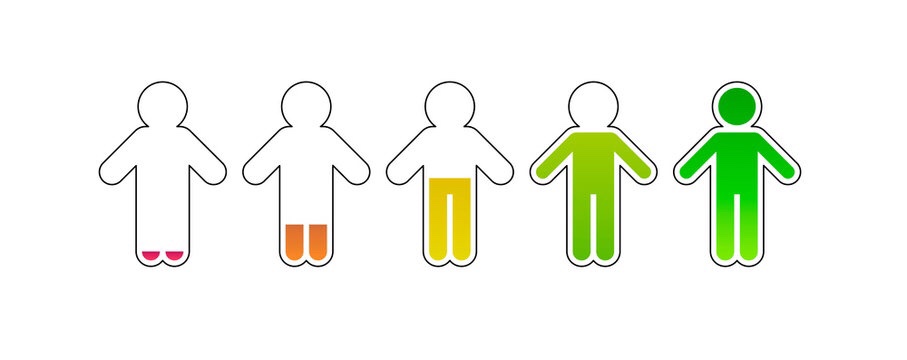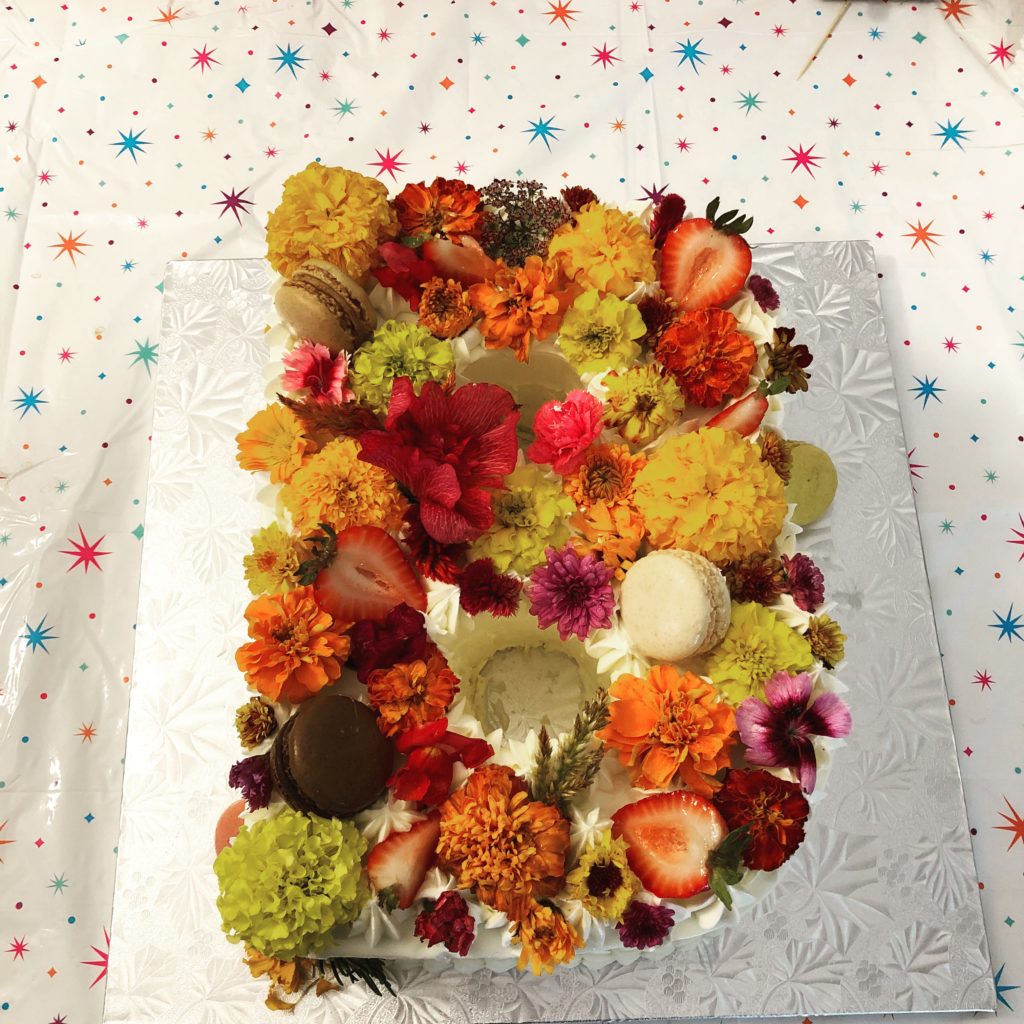October, 2025
now browsing by month
The Labor of Knowing


Sipping my first coffee this morning, I realized I hadn’t walked among trees since Monday. Obviously, I had to remedy that. As I walked along one of my two favorite, near-by places to be among trees, I thought about a million things, first Annie Dillard because I can’t walk a path in nature regularly without meditating on Pilgrim at Tinker Creek, and eventually working my way around to love and friendship – hardly a surprise given my current readings.
Ouiser visited for five blessed days this past week. Amidst all the fun and excitement, we, of course, managed a few serious conversations trying to come to terms with the chaos that seemingly envelops everything right now. We even found some calm among that storm walking this same path.

I’m still thinking and reading about love. Still crafting what I have to say about how love reveals itself through acts of care, respect, knowing, and assuming responsibility.
Recently, as I scrolled through Instagram videos, I am across one of a young woman who said that the more she really listened to men, the less she considered herself a feminist. It was click bait designed to create a scuffle. As I walked today, I realized what I found so terribly sad about the video – change requires the exact opposite of what this young woman outlined. The more I engage with men, listen deeply to them, and see the consequences of capitalist, patriarchal structures in their lives, the more deeply I commit to feminism.
My copy of Feminism is for Everybody is stuck on the shelf in my office. If I ever get back there, I may pick it up and return to this idea for further discussion. As hooks establishes, feminism is a movement to end sexism, sexist exploitation, and oppression. Today, I’m bringing it up, because I am thinking about that connection between knowing and loving. It’s no secret that gender influences why, how, and where communities choose to resist sexist, capitalist, and patriarchal structures or that pitting people against each other across race, class, and gender lines is one tactic to keep people from uniting to demand substantive change. It made me sad to see the tactic still working.

As I walked and thought of love and knowing, I also thought of how the work of knowing is as gendered as the work of caring. Women know men; they have to, their lives often depend on knowing how the men around them think and feel. Women know sexism; they live with the most immediate consequences of it and those consequences deepen and sharpen as they intersect across race, class, and sexuality. Feminists have also been vocal about these consequences throughout history. Yet, very few people men and women alike, have taken the time to know feminists and feminism. To believe women, as the #MeToo movement asked. To turn knowing into action and into responsibility to create change that will benefit everybody.
Today, as I walked through the blanket of leaves so thick that it was easy to lose the path, I wanted to post the beauty. To remember that these beautiful moments when we walk a path alone and the moments when we are blessed enough to share a path with a friend, are what we labor for. We must labor to know one another and for that knowing to become a part of an active love for one another.
A cookie is a cookie is a cookie …

Two incidents from grad school keep popping up as I re-visit bell hooks All About Love and Communion.
At the end of my MA program, I took my first feminist theory classes with a professor, who inspired me. She challenged me, and I admired her. She is the reason I ended up in the Ph.D. program at my school. She pushed me to go somewhere else, but I wanted to continue to study with her. In the end, she left the university right after I submitted my dissertation proposal, so I probably should have listened. (That is an entirely different story.) The exact name of the course escapes me, but I am sure it had something to do with feminist pedagogies and composition. I am sure, because I unwittingly ignited a firestorm of feminist debate at our end of the semester dinner party.

At the end of that semester I completed my first year teaching composition at the local community college. I’d opted to complete an internship style program rather than write a thesis. I brought some Cowboy Cookies (around my house that means oatmeal cookies with chocolate chips and walnuts) that I’d baked as part of my contribution to the dinner. At some point, I must have mentioned that I had also made enough cookies to take to celebrate the end of my first year teaching with my composition students.
After twenty years, I don’t remember the conversation verbatim, I am pretty sure it started with an exasperated comment from my professor wondering if I’d learned anything at all in her class. Because baking cookies for my students perpetuated gendered stereotypes about how women professors should care for students. Basically, I’d forsaken feminist pedagogies, shored up expectations that women will perform uncompensated caring labor, and made things more difficult for women who don’t fit the stereotype. I didn’t have a great come back. I pointed out that it was the end of the semester, and that the point wasn’t about caring for the students. I was celebrating a milestone – the end of my first year teaching. A classmate, who was every bit as passionate, strong-willed, and inspiring as our professor, vehemently defended me. She argued that the point of feminism is that I had the choice to make cookies or not make cookies.
They went on about it for long enough that the whole incident became a reference point for those of us in the class for the next few years.
A couple of years later, during my Ph.D. work, I had the opportunity to hear bell hooks speak. I believe it was at Winston-Salem State University. I don’t remember the exact talk now, but I know she talked about love. I know because I remember, with regret, how dismissive I was about her message. Still influenced by my professor and other feminist scholars, I was too focused on how work considered, “women’s work” is devalued within systems. And as hooks writes, “Patriarchy has always seen love as women’s work, degraded and devalued labor.” I went into the talk wanting a different kind of feminism from hooks; what she offered was more radical than I knew at the time.
It wasn’t until 2021 or 2022, that I finally started to read hook’s work on love, that I was ready to really listen. In the All About Love chapter “Community: Loving Communion,” hooks opens by reminding us that “Communities sustain life — not nuclear families, or the “couple,” and certainly not the rugged individualist.” For hooks, “When we see love as the will to nurture one’s own or another’s spiritual growth, revealed through acts of care, respect, knowing, and assuming responsibility, the foundation of all love in our life in the same. There is no special love exclusively reserved for romantic partners. Genuine love is the foundation of our engagement with ourselves, with family, with friends, with partners, with everyone we choose to love.”
My professor wasn’t wrong. Overtly caring work like nursing, teaching, child care has been characterized as women’s work and degraded and devalued. You can find a million articles about it, and if you require less academic/more real world proof, watch Meet the Parents again and pay attention to all the jokes about Ben Stiller’s profession. Resisting that devaluation has been important work, particularly when we consider the way that devaluation compounds as it impacts across race as well as gender.
We are, however, so clearly living in broken communities. [gestures hopelessly at the world]
hooks’ message was more radical than I knew, because I couldn’t comprehend the ramifications of these broken communities. Love isn’t all we need. We also need action. We need the “acts of care, respect, knowing, and assuming responsibility” hooks says demonstrate love. I think we also need the accountability that comes with responsibility.
I know I’m guilty of conflating love/acts of care a bit as I am trying to work out their relationship in my stories. Their relationship and the difficulty of teasing them apart for discussion is some of the point. We need a broader vocabulary of love, and we need a less gendered understanding of the labor of love that enables us all to assume the responsibility of it.
Clearly, there is a lot to think through here. I’ve reached the limit of blog-post attention span, though. So, I’ll pick up the threads another time.
Learning to Labor
It’s a bit funny how time is the one thing we always seem to want more of; yet, sometimes when we suddenly get it, we don’t know what to do with it.
The time I suddenly have on my hands is a blessing and a curse. A blessing that allows me to focus on recovering from burn out and attending to what I call the “admin” of my life — the chores, appointments, and tasks that need to get done, but that I rarely have time for during the week. A curse that undermines my ability to rest and get things done by activating my avoidant self and the critical self-talk about everything I “should” be able to do in a day. All the items that “should” be ticked off my list already.

Letting go of the “shoulds” to focus on the present helps me get to that rest and recovery. My brain knows these things. My body and my inner monologue often need some time to catch up.
Recovering my morning reflective practice has been the best gift of this time. The alarm doesn’t go off every morning, but I do get up at about the same time every day. After my daily maintenance routine, I set a timer and read for :25 minutes and then journal for :25 minutes. Right now, that means working through Brene Brown’s new book, Strong Ground. Afterwards, I focus on some projects for myself, and usually do some other reading.
Right now, all my efforts have me about to that middle, half-filled yellow silhouette in the image above. The challenge moving forward is letting go of the inner monologue that tells me what I have done isn’t enough. That I should be doing more. That I am wasting this time.
I’m not though.
As she promotes this new book, Dr. Brown talks some about the AI revolution that we are all facing in the workforce. Specifically, she brings up people in the workplace who believe that our “human-ness” will keep AI from completely taking over. That people will remain essential in the work place because of the human things we can do that AI cannot – empathy, connection, rhetorical awareness, etc. Brown points out that one problem with this thinking is that right now “we” (humans) are not very good at what makes us human. She has a point. Even a cursory glance at the headlines and happenings in the world illustrates all too well how we are failing each other.
Her observations raises other questions for me that I’ve been struggling with as I attempt to adapt to this AI revolution. What makes us human? What is work? How do we measure what is important about the work that we do? There’s no Dunning-Krueger effect here; I do not think I can answer these questions. I’m rumbling with them, though. Finishing Dr. Shannon Valor’s The AI Mirror. Returning to bell hook’s all about love, and Baudrillard’s Simulacra and Simulation.
In a quotation within a quotation within a quotation, Brown’s Strong Ground introduced me to Dr. Sara Lewis with a long passage from her book The Rise. In that book, Dr. Lewis provides a quotation from Lewis Hyde, “Work is what we do by the hour, [but labor] sets its own pace. We may get paid for it, but it’s harder to quantify. … Writing a poem, raising a child, developing a new calculus, resolving a neurosis, invention in all forms— these are labors.” This distinction between work and labor lives in me; it is the marrow of my bones. I’ve been working by the hour since well before I was sixteen and legally able to get a job.
Although the trend has been developing before, since the beginning of this year, the pace and pressure to reduce labor to quantifiable, productive work increased exponentially. The AI revolution is not the only force reshaping workplaces. My body, my brain, and my inner monologue have been calibrate for work. Work done by the hour. Work measurable by word count, check marks on the to-do list, emails sent, meetings held.
Suddenly, though, there is time to labor. Time to read and question and think and re-think. I suppose it is only natural for it to take some time for me to adapt to this pace. Perhaps a question to add to my list, “How do humans labor?” And a question to take back to the office with us, “What labor do I need to do today?”
Personal Holidays
October 4, 2008 was as gloriously sunny Saturday as it is today on October 4, 2025.
I know, because on October 4, 2008 I was supposed to enjoy a day at the North Carolina zoo with my ex-husband. The sun shined and the leaves had just begun to change colors. It was a truly rare Saturday that the ex-husband and I had the opportunity to spend time together. Instead, October 4, 2008 became a day I can never quite forget and that I never really know how to celebrate, Stroke Day.
I last celebrated Stoke day in 2018. It felt like 10 years was enough time to mark, so I did it right. I invited friends to my place in Aberdeen, NC and we had a lovely spread of snacks, and I had a cake made.
It was a great end to the Stroke Day commemorations. So, I didn’t really expect to be writing about it still.
On this Stroke Day, though, I haven’t been able to escape the memories. Maybe it’s the fact that the day is falling on a Saturday again. Maybe it’s the fact that, in a year that has already challenged me and the rest of the nation, yet another challenging event has just begun. The seventeen years since stroke day have taught me the depth of my strength and the boundless capacity of my joy.
So, whether I choose to commemorate it or not, October 4th remains a personal holiday for me. One that reminds me to be as grateful for the struggles as I am for the gifts.






 D5 Creation
D5 Creation